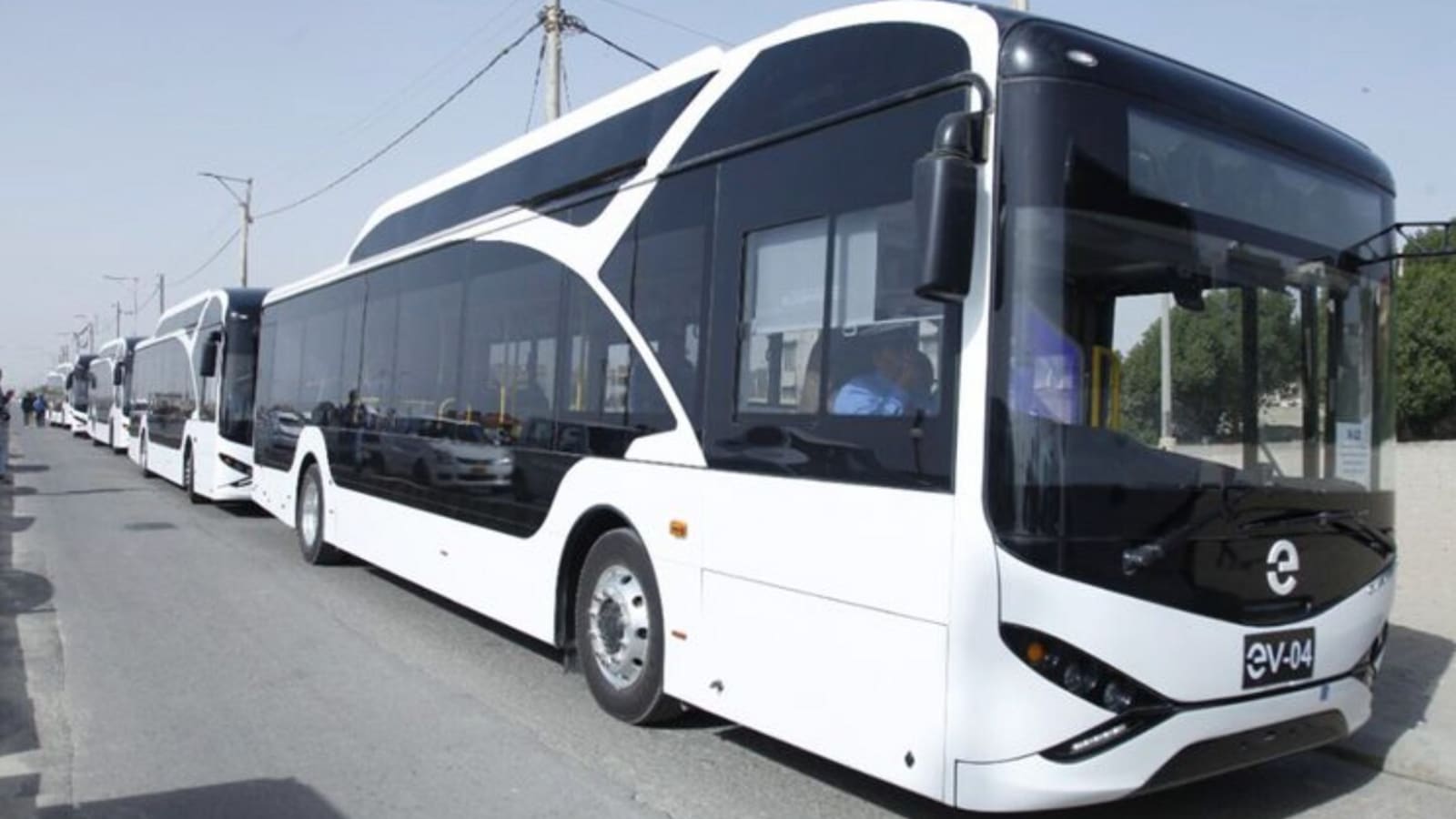“Not only has the electric bus service lowered my weekly travel costs, but it has also helped my … health issues,” the 50-year-old reporter said by phone, noting he had back pain while riding his motorcycle to work.
However, Kamran said there are not enough electric buses — only 10 of the original fleet of 50 are currently running — and he has sometimes had to wait 45 minutes to catch one.
Urban air pollution is a longstanding major problem in Pakistan, with the country ranked third globally out of 118 countries with the worst air quality in 2021, according to Swiss pollution technology company IQAir.
The latest Global Burden of Disease (GBD) study shows that poor air quality is the leading cause of death in this South Asian country of approximately 224 million people, with an estimated 236,000 premature deaths in 2019.
As concerns grow over the number of vehicles on the roads — there are 30.7 million cars in Pakistan in 2020, up from 9.6 million in 2011 — cities such as Peshawar and Karachi have announced plans to boost greener transport.
Karachi’s 50 electric buses can each carry at least 70 passengers and can travel 240 kilometers (149 miles) on a single charge.
The $15 million fleet was funded through a public-private partnership, with a transport company buying the buses and operating them for eight years before the Sindh provincial government took over.
According to Abdul Haleem Shaikh, Sindh Minister of Transport and Public Transport, the government is currently in talks with the Asian Development Bank (ADB) to seek a loan of about US$30 million to buy the Additional 100 buses.
“We want to provide people with emission-free, comfortable and luxurious buses with well-trained staff to discourage them from using cars and motorcycles that emit smog,” he said.
However, environmental and urban experts have questioned whether a small number of electric buses will make a big difference, and have called for broader, more meaningful transport reforms.
Need to change the system?.
A succession of climate disasters, from heat waves to forest fires, has hit Pakistan over the past few years, and the country is still recovering from unprecedented floods in 2022.
But air pollution remains one of the country’s major environmental concerns, with the country’s climate change ministry saying at least 40 percent of Pakistan’s dirty air is generated by cars.
In November 2019, the Pakistani government set a goal of integrating 500,000 electric motorcycles and rickshaws and more than 100,000 electric cars, buses and trucks into the transport system within five years. The total number of people on the road is currently unknown.
Pakistan’s long-term goal is to ensure that a third of all cars and trucks sold and half of motorcycles and buses sold are electric by 2030, and has generally vowed to ramp up efforts in the years leading up to that to reduce Greenhouse gas emission date.
In the northwestern city of Peshawar, the provincial government is phasing out old buses on the roads and replacing them with diesel-electric hybrid models as part of a new public transport system.
In Karachi, in addition to 50 new electric buses, the government has rolled out a network of 250 vehicles that run on biomethane produced from buffalo dung.
However, Karachi’s bus initiatives – old and new – have been criticized by some analysts who say they have not done enough to reduce pollution.
Muhammad Toheed, deputy director of the Karachi Urban Lab at the Faculty of Business Administration, said a better focus should be on reducing the total number of cars and motorcycles on the road and raising public awareness on the impact of air pollution.
“The commuter who uses his own smog-emitting vehicle or bicycle to go to work doesn’t understand his cruelty to the environment,” he said.
Yasir Husain of Darya Lab, a consultancy dealing with environmental issues, said at least 1,500 electric buses would be needed, not 150, to have any impact on Karachi’s emissions reductions.
“The government should also provide soft loans through easy financing to promote the use of e-bikes and e-rickshaws,” said Hussein, founder of the advocacy group Green Pakistan Coalition.
Transport Minister Sheikh acknowledged that 150 new electric buses alone would not do much to reduce air pollution, but pointed to the biomethane vehicles and highlighted the 29 conventional bus lines covering the city.
He said Pakistan’s current economic crisis and economic damage from floods in 2022 would not hinder the rollout of more electric buses, as such funding would come from international lenders.
Entrepreneur Bhevish Kumar, 24, said he had been taking the new electric bus to business meetings, but wondered whether the limited fleet would really do much to clean up Karachi’s choking air.
“There is a need to expand electric bus services and penetrate more into the city’s transport system to ensure people are not burning … fuel in their vehicles,” he said.
First published date: March 13, 2023 at 15:58 PM CST
https://auto.hindustantimes.com/auto/electric-vehicles/in-pakistan-chinese-electric-buses-aim-to-reduce-urban-air-pollution-woes-41678702743337.html
